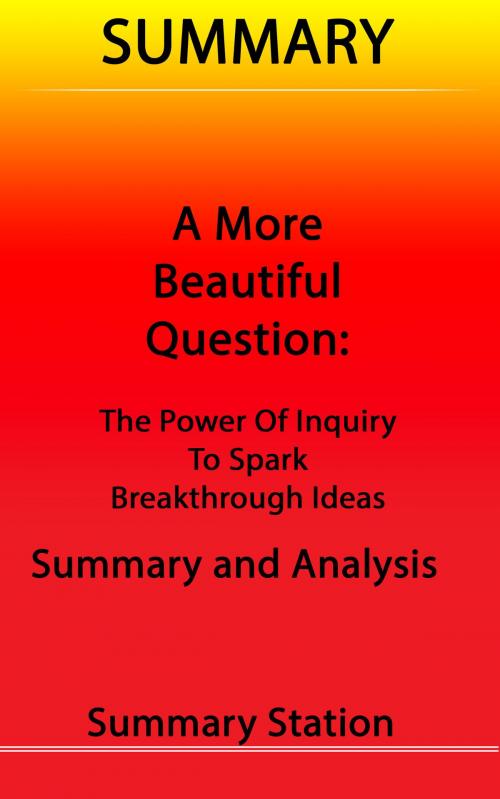A More Beautiful Question: The Power of Inquiry to Spark Breakthrough Ideas | Summary
Business & Finance, Management & Leadership, Management Science, Production & Operations Management| Author: | Summary Station | ISBN: | 9781310276194 |
| Publisher: | Summary Station | Publication: | May 24, 2016 |
| Imprint: | Smashwords Edition | Language: | English |
| Author: | Summary Station |
| ISBN: | 9781310276194 |
| Publisher: | Summary Station |
| Publication: | May 24, 2016 |
| Imprint: | Smashwords Edition |
| Language: | English |
Warren Berger explains in the introduction that he is a journalist and, therefore, asks questions for his profession. A few years before this book was published, he wrote a series of articles, which eventually became part of a book, on the art and science of questioning. He interviewed innovators of business, designers, inventors, and engineers, to learn how they overcame challenges and found success. He did not find a single reason for their various successes, but he did find that many of them were talented at asking questions. For example, Steve Jobs of Apple and Jeff Bezos of Amazon were known for constantly questioning everything. Google actually runs on questions. Yet few companies encourage questioning. There are no departments focused on questions, no policies for asking questions. Similarly, schools do not encourage questioning. Many teachers recognize that being able to formulate good questions is an important skill, but it is not one that is tested in your average school. Too often, companies and schools, and even nonprofits confronting global issues, tend to continue with their norm, continue the work they have been doing without questioning whether their current method is the most effective one. Why not stop to question, and why isn’t questioning taught?
Warren Berger explains in the introduction that he is a journalist and, therefore, asks questions for his profession. A few years before this book was published, he wrote a series of articles, which eventually became part of a book, on the art and science of questioning. He interviewed innovators of business, designers, inventors, and engineers, to learn how they overcame challenges and found success. He did not find a single reason for their various successes, but he did find that many of them were talented at asking questions. For example, Steve Jobs of Apple and Jeff Bezos of Amazon were known for constantly questioning everything. Google actually runs on questions. Yet few companies encourage questioning. There are no departments focused on questions, no policies for asking questions. Similarly, schools do not encourage questioning. Many teachers recognize that being able to formulate good questions is an important skill, but it is not one that is tested in your average school. Too often, companies and schools, and even nonprofits confronting global issues, tend to continue with their norm, continue the work they have been doing without questioning whether their current method is the most effective one. Why not stop to question, and why isn’t questioning taught?















